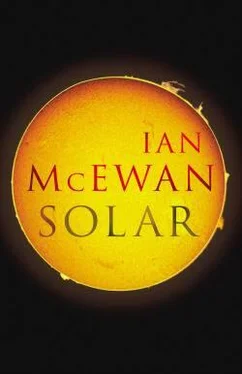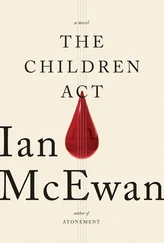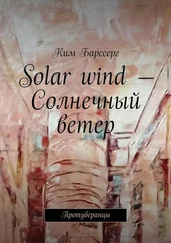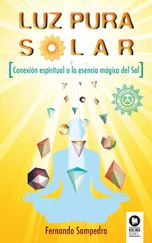After his deliverance from the jaws of a polar bear, he did nothing adventurous all week. Bolder types went off with a guide to hike in the mountains, or make a snow cave, or explored on snowmobiles a steep valley that rose through rocky outcrops on the far side of the fjord. Each day he spent two or three hours outside the ship, pottering about with the others. He was taken on as an assistant, holding an end of a piece of string, cutting blocks of ice for Jesus, helping with Pickett’s microphones, joining in the dance. This involved being filmed walking in single file at a measured pace behind a dozen others for two hundred yards in a straight line, before making a right-angled turn and walking the same distance before the next turn. It was soothing, he was content to think of nothing and be told what to do. In a warmer climate, with better health, he might have tried his chances with the choreographer, slender Elodie, from Montpellier, especially if she had come away without her husband, a bullet-headed photographer who had once played rugby for France. Stella Polkinghorne also had a husband – the convenor, Barry Pickett.
Beard’s life, then, was simplified. Caring little for art or climate change, and even less for art about climate change, he kept his thoughts to himself and was affable, and was surprised to find himself faintly popular. His mind emptied as he went about the ice on his errands. One lunchtime he carried out from the ship cups of tomato soup, which froze as he reached the bottom of the gangplank. They were incorporated into a sculpture. His spirits rose, or ceased to sink. He thought about his fitness again. Only ten or twelve years before, he had played a plausible game of tennis, compensating for his height with a vicious, stabbing little forehand volley at the net. And he had once skied with near competence. Eight years ago he could still touch his toes. Surely, it was not inevitable that he should get heavier by the month until he dropped dead? He arranged to take a daily hike on the fjord, a two-mile circuit around the ship, escorted by Jan carrying a gun. After the second excursion, lying on his bunk in the afternoon with aching legs, he made a mental list of the food he would no longer touch. He was fifteen pounds overweight. Act now, or die early. He swore off all the usual things – dairy produce, red meat, fried food, cakes, salted nuts. And crisps, for which he had a particular weakness. There were other items, but he was asleep before the list was complete. During the last three days of his stay he kept to the new regime.
From the second day, the disorder in the boot room was noticeable, even to Beard. He suspected that he never wore the same boots on consecutive days. Even though he wrapped his goggles (these ones were undamaged) in his inner balaclava on the third day, they were gone by the fourth, and the balaclava was on the floor, soaking up water. That morning he saw several snowmobile suits, also on the floor. They had a trampled appearance, and he decided, without looking too closely, that none could be his. Pickett admitted to him, while they were out recording the sound of the wind in the ship’s rigging, that for two days he had been wearing two left boots. But he was a hardy sort who did not seem to mind. Beard did mind. He was not a communally-spirited person, but there were certain decencies he took for granted – in himself, and therefore in others. He always put his stuff on and below the same peg, number seventeen, and was disappointed to note that others had trouble observing such simple procedures. Gloves were a particular problem, for it was impossible to go outside without them. As a precaution, he stuffed his inside his boots, along with the glove liners. The next day the boots were gone.
He liked the evenings. By the time they started gathering in the mess room before dinner, it had been dark for five hours. There was two hours’ drinking before the first course. The wine was from a neglected region of Libya. He generally started on the white, drank the red until he sickened and returned to the white, and there was generally enough time to switch back before bedtime. After dinner, there was, of course, only one topic. Mostly, Beard listened. Never before had he encountered idealists in such concentration and he was by turns intrigued, embarrassed, constrained. When Pickett asked him on the third night to talk about his work, he stood up to speak. He described the Centre and the quadruple-helix rooftop wind turbine, plausibly claiming it as his own initiative. It was a revolutionary design, he told the room, and he made a sketch to be passed around. It would cut household bills by eighty-five per cent, a saving that would be the equivalent of building – not quite drunk, he summoned a number – twenty-three medium-sized power stations. There were respectful questions, and he answered them judiciously, lucidly. He was among scientific illiterates and could have said anything. There was an impassioned statement of support from Stella Polkinghorne. She said that Beard was the only one here doing something ‘real’, at which the whole room warmed to him and applauded loudly. He had never cared much what others thought, but now – how lowering – he was touched and could not conceal it, to be, for just a few minutes, the darling of the ship.
Otherwise, he listened and drank. After two or three glasses of the white, the red went down painlessly, like water, at least at first. There were themes – some were canonic and chased each other crazily, others were fugal and ran concurrently, as disappointment did with bitterness: the century had ended and climate change remained a marginal concern, Bush had torn up Clinton’s modest proposals, the United States would turn its back on Kyoto, Blair showed no grip on the subject, the long-ago hopes of Rio were lost. Canonically pursuing then overtaking disappointment was alarm. The Gulf Stream would vanish, Europeans would freeze to death in their beds, the Amazon would be a desert, some continents would catch fire, others would drown, and by 2085 the Arctic summer ice would be gone and the polar bears with it. Beard had heard these predictions before and believed none of them. And if he had, he would not have been alarmed. A childless man of a certain age at the end of his fifth marriage could afford a touch of nihilism. The earth could do without Patrice and Michael Beard. And if it shrugged off all the other humans, the biosphere would soldier on, and in a mere ten million years teem with strange new forms, perhaps none of them clever in an apeish way. Then who would regret that no one remembered Shakespeare, Bach, Einstein, or the Beard-Einstein Conflation?
While dark and even greater cold enveloped the ship in the lonely frozen fjord, and the brave yellow gleam from its portholes was the only light, the only sign of life for a hundred miles across the crackling icy wastes, other themes flourished symphonically: what was to be done, what treaties were to be made between the quarrelsome nations, what concessions, what gifts should the rich world self-interestedly make to the poor? In the mess room’s humid after-dinner warmth, it seemed to the owners of full stomachs sealed with wine that it was only reason that could prevail against short-term interests and greed, only rationality could draw, by way of warning, the indistinct cartoon of a calamitous future in which all must bake, shiver or drown.
The statehood-and-treaty talk was worldly in comparison with another leitmotiv that summoned a cooling measure of austere plainsong, a puritanical air from the old conservation days, distrustful of technological fixes, determined that what was required was a different way of life for everyone, a lighter tread on the precious filigree of ecosystems, a near-religious regard for new rules of human fulfilment in order to flourish beyond supermarkets, airports, concrete, traffic, even power stations – a minority view, but heard with guilty respect by all who had steered a stinking snowmobile across the pristine land.
Читать дальше












